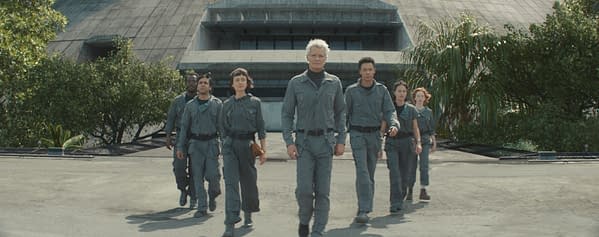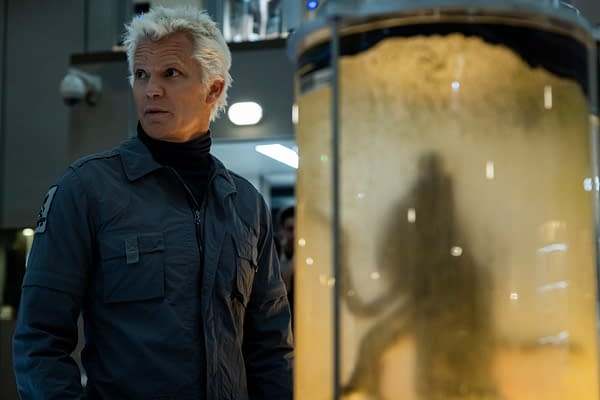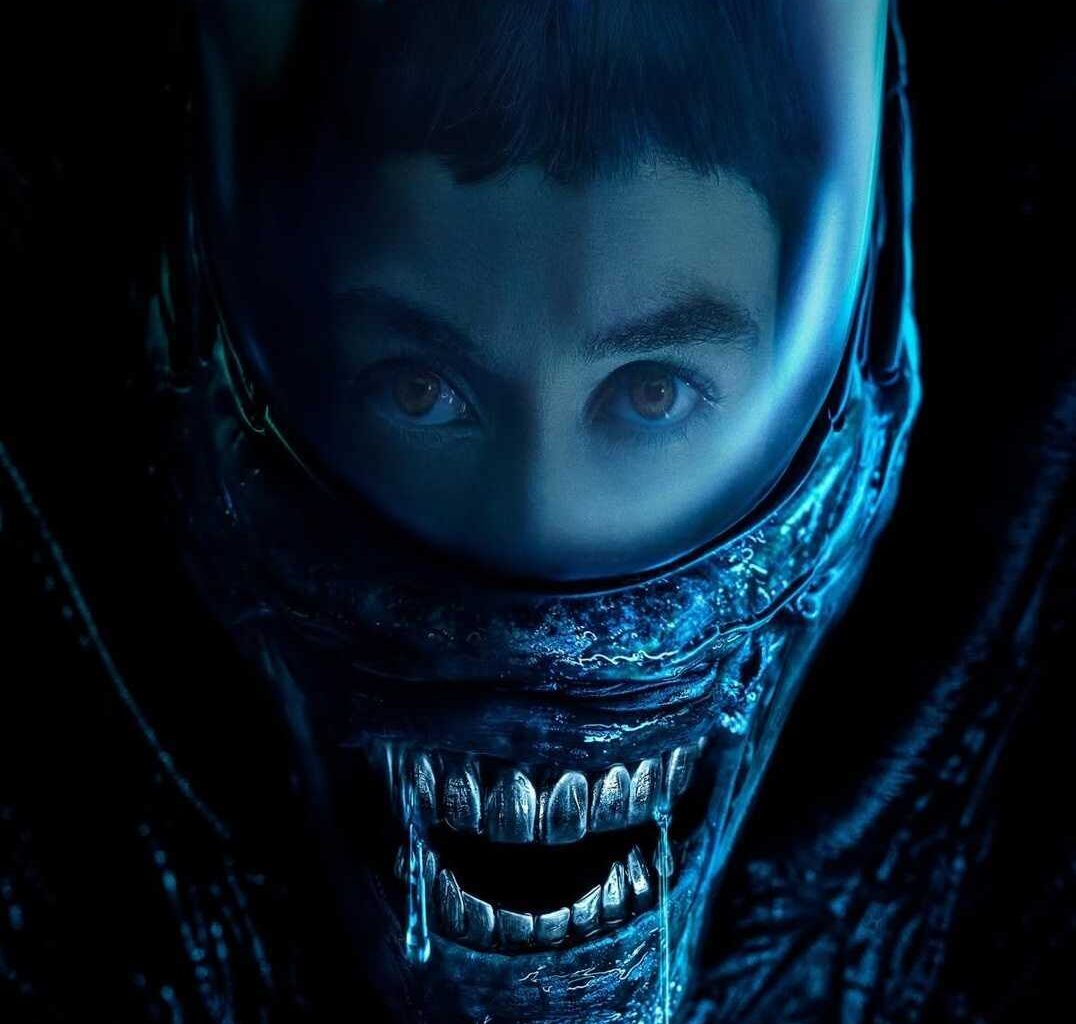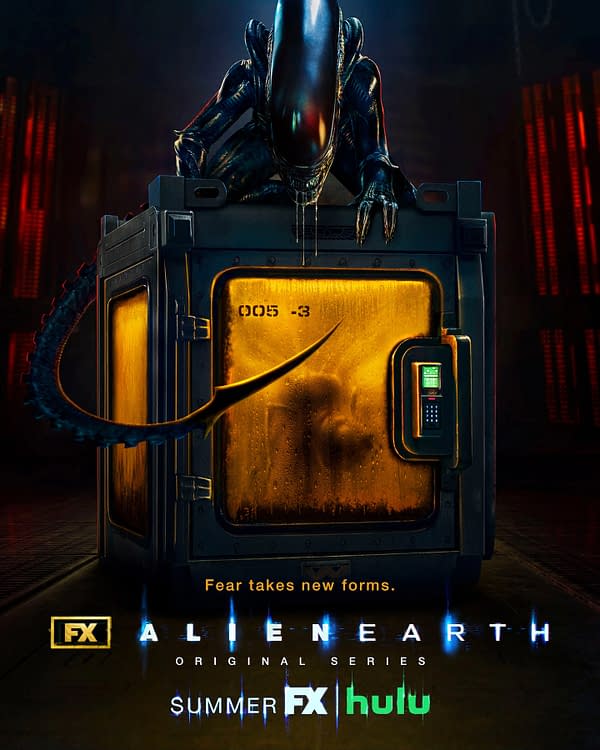Posted in: FX, TV | Tagged: alien: earth, noah hawley
Alien: Earth Showrunner Noah Hawley and EP David W. Zucker discussed expanding the franchise for TV, synthetics/xenomorphs, and much more.
Published Sat, 09 Aug 2025 12:37:03 -0500 by Tom Chang
|
Article Summary
Showrunner Noah Hawley and EP David Zucker delve into expanding Alien: Earth for television audiences.
The series explores deeper character development and social themes not possible in the film format.
Xenomorph and hybrid creature creation blends story needs with innovative practical and digital effects.
Alien: Earth aims to honor the franchise legacy while forging a unique vision set before the original film.
▶” style=”border: 0px;” allow=”accelerometer; autoplay; encrypted-media; gyroscope; picture-in-picture; fullscreen;” loading=”lazy” src=”https://www.youtube.com/embed/FqIi3N9dusk?feature=oembed” title=”Youtube Video”>
The Alien franchise has come such a long way since the 1979 Ridley Scott film as part of the modern sci-fi movement. What’s unique about the Dan O’Bannon and Ronald Shusett-created franchise that’s spawned seven films is its longevity both in the sci-fi and horror, and it’s not slowing down any time soon with new technology and generations of creatives from James Cameron, David Fincher, Jean-Pierre Jeunet, to Fede Alvarez contributing to films, and that doesn’t even include the two crossover films with Predator. Scott returned to directing the franchise with 2012’s Prometheus and 2017’s Alien Covenant. The next chapter of the Alien franchise falls to Noah Hawley, who previously helped expand the Coen Brothers film Fargo into a successful FX series, as he writes the next chapter in the prequel series Alien: Earth, set two years before the 1979 film. When the mysterious deep space research vessel USCSS Maginot crash-lands on Earth, “Wendy” (Sydney Chandler) and a ragtag group of tactical soldiers make a fateful discovery that puts them face-to-face with the planet’s greatest threat. Hawley and executive producer David W. Zucker spoke to Bleeding Cool about the advantages of expanding Alien to TV, balancing creating something original for the franchise while honoring its legacy, and exploring the deeper narratives of the Synthetics and Xenomorphs.

Alien: Earth Creator Noah Hawley and EP David W. Zucker on Embracing TV Challenges for FX Series
What are the advantages of telling the ‘Alien’ franchise for live-action TV instead of film?
Hawley: Well, character, really. An ‘Alien’ movie is a survival story. It’s a two-hour survival story, and a television show is not that. A television show is a long-form story that’s driven by character and theme, so I think after seven ‘Alien’ movies, right, in which inevitably you end up with a lot of running away, right? Here, you’re talking about building a character drama that is looking at the social and political issues, many of which we’re facing in our world today and then turning the sort of existential threat we’re all facing about how the natural world is starting to turn on us right and we’re making it literal by bringing these creatures down to earth.

When it comes to approaching this, what’s the difficult process of balancing creating something new and honoring the franchise’s legacy? Can we expect stuff where we cross the streams, with maybe past characters from the past emerging in the show?
Hawley: What I learned when I did ‘Fargo’ in the first year is, the show’s got a stand on its own. Certainly, ultimately, in Fargo, there was some connection with the Coen brothers’ other work. Here, I feel like it’s the same. We’re obviously in the same universe as the ‘Alien’ movies. We’re a little bit on the front end of Ridley’s film, but I’m here without a roadmap for how humanity is organized, which is not part of the ‘Alien’ movies, and so part of what I’m doing is sort of setting the table to say, “What is Weyland-Yutani? How does it exist on Earth inside this sort of larger corporate struggle with these other companies, and where is humanity at this moment?”
Zucker: I don’t think there’s anything more exciting and more daunting to some degree than to take a franchise that’s had this legacy, this history, and to have someone of Noah’s craft and vision to literally blaze his own trail with it. It definitely exists within the same sort of national park. We are visiting a destination that we have some familiarity with, but we’re taking an entirely different hike, and ascending in an entirely different way.
What went into this process of developing the xenomorphs and the hybrids in the ‘Alien’ franchise, I feel we’ve scratched the surface on, because we have the familiar humanoid ones. I was curious about how the various animal hybrids were created. Can you talk a little bit about that?
Hawley: It’s always about the functionality, both creatures and hybrids. You have a lot of conversations about do they sweat, right? Can they cry? You think, “Well, [Ian] Holm was pretty sweaty in that [‘Alien’], and you know, he was definitely breathing, right?” So, I started to create these rules, right? If you’re going to put your consciousness into a synthetic body. If it didn’t breathe, you would probably freak out, right? Maybe there’s even a simulated heartbeat you would feel, just so that you don’t feel completely outside your own experience of the world.
The creature design was a process that started on the page with what I needed these creatures to do, right? It became a process of bringing Weta [Workshop] in and going through a design process with them that then led to some practical models being built that then led to some 3D renderings, and CG work that we ultimately ended up doing for some of them.
Joseph Iberti, Dana Gonzales, and Clayton Krueger join Hawley, Scott, and Zucker as executive producers. Alien: Earth, which also stars Timothy Olyphant, Alex Lawther, Babou Ceesay, Samuel Kavalier, Essie Davis, Adarsh Gourav, Jonathan Ajayi, Diêm Camille, Lily Newmark, Kit Young, David Rysdahl, and Adrian Edmondson, premieres its first two episodes on August 12th on FX.
Enjoyed this? Please share on social media!
![]()
Stay up-to-date and support the site by following Bleeding Cool on Google News today!



